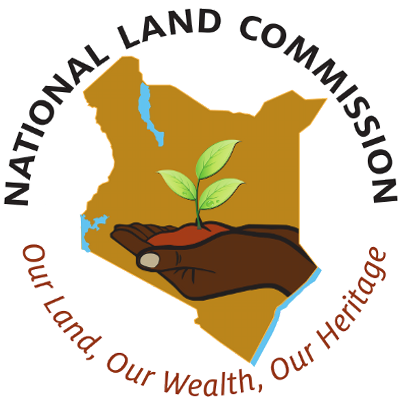Critical Milestones for the Last 10 Years
- Compulsory Acquisition of Land and Compensation Disbursements
The Commission has facilitated acquisition of land for 97 flagship public projects in various sectors like transport, water and sanitation, energy and security as spelt out in Vision 2030. In this regard, the Commission has disbursed over Kshs. 73 Billion to Project Affected Persons (PAPs) whose land was compulsorily acquired for the projects. This has contributed greatly to the achievement of the Big 4 Agenda.
- Administration and Management of Public Land
a. Land Allocations
The Commission received approximately 7,546 proposals for allocation of public land recommended by various Counties as follows:
- Under the manufacturing sector-100 acres of land to the Export Processing Zone Authority;
- Under the energy sector-1,032 hectares allocated to Kenwind Limited for generation of wind power in Lamu County and:
- Under the infrastructure sector -28,000 hectares for LAPSSET Development Authority for Lamu Port development among others.
b. Development Control
The Commission approved and monitored the development of public land through extension /renewal of leases, change /extension of user, subdivisions and building plan approvals. It has processed and recommended for approval over 6,800 renewals/extensions of leases, 4,290 subdivisions/amalgamations schemes, 3,000 change/extension of user and 3,566 building plans.
c. School Titling Programme
To protect schools against illegal land-grabs, the Commission in conjunction with the other agencies in the Shule Yangu Alliance Campaign prepared and dispatched 3,020 transfers of school land to relevant land registries for registration and issuance of titles.
- Review of Grants and Dispositions of Public Land.
The Commission reviewed grants and dispositions to public land in various counties including: Nairobi, Mombasa, Kisumu, Kiambu, Taita Taveta, Kakamega, Kilifi, Nakuru, Narok, Lamu, Kisii, Kilifi, Baringo, Makueni, Nakuru, Lamu, Uasin Gishu, Machakos, Kisumu, Kwale, Embu, Kirinyaga, Laikipia, Mandera, Garissa, Marsabit, and Embu. The process of review of grants and dispositions of public land resulted in reclaiming public land.
- Land Conflict Resolution Mechanism
a. Historical Land Injustices (HLIs)
The Commission received 3,665 claims on HLIs. About 126 have been analyzed and determined while the remaining are being considered for admission, investigation and hearing.
b. Alternative Dispute Resolution (ADR) and Traditional Dispute Resolution (TDR)
The Commission has been able to handle over 5,000 land disputes through the ADR/TDR mechanism. The resolution of these land disputes has promoted national cohesion and peaceful coexistence between communities.
-
- Civil Litigations and Investigations
The Commission has participated in resolving numerous court cases touching on land at the Supreme Court, Court of Appeal, High Court (Environment and Land Court) and the Magistrates Court. It has also played an important role in carrying out investigations & forensic services in fraudulent public land transactions. It liaised closely with NEMA and NCA for protection of riparian land where it served notices for the withdrawal of construction licenses to people putting up structures on riparian land.
- Mainstreaming of Land Use Planning
The Commission prepared frameworks for monitoring the implementation of the National Land Use Policy (NLUP) and monitoring implementation of the National Spatial Plan (NSP). It also reviewed and made recommendations for improvement on Urban Land Use Plans. These are tools of engagement between the Commission as a monitoring and oversight agency and County governments as planning authorities.
- Research and Natural Resources
a. Research on Land and use of Natural Resources
The Commission continues to guide the country on policy matters through research on land and the use of natural resources towards improving land administration and management in Kenya. Consequently, the Commission has developed its research agenda in the following thematic areas:
- Land Governance and Land Management,
- Land use planning and land use conflict resolution,
- Land Rights and Security of Tenure,
- Emerging Global and Strategic Land Issues,
- Historical Land Injustices and Legal Research,
- Sustainable Conservation of Land-Based Natural Resources; and
- Valuation and Taxation.
b. Development of Kenya’s Natural Resource Atlas and Inventory
The development of the Country’s Natural Resources Atlas as an information hub to integrate a multiplicity of actors/agencies’ data on land-based resources is another achievement by the Commission. The atlas shows how the entire natural capital is distributed and interconnected as well as the changing patterns within the land/seascape towards enhancing and informing sustainable socio-economic development in the country.
- Revenue generation from land and land-based resources
Through the assessment of tax on land and premium on immovable property in any area designated by law, the Commission has generated revenue from the land and land-based resources where it regularly reviews and prescribes rents, royalties, and other payments that should be paid by lessees and licensees of the public land.
- Implementation of the 2009 Land Policy
The Commission has implemented various recommendations regarding land management and administration under land policy principles. These include:
- equitable access to land;
- security of land rights;
- sustainable and productive management of land resources;
- transparent and cost-effective administration of land;
- sound conservation and protection of ecologically sensitive areas;
- elimination of gender discrimination in law, customs and practices related to land and property in land; among others.
The Commission further developed an advisory opinion to guide in the development of a new land policy to the Parliament.
- Advisories Issued by National Land Commission
The Commission issued more than 20 advisory opinions to MDAs, Parliament, County Governments, foreign governments and investors to ensure enhancement of better land governance.
10. Public Education and Awareness:
The Commission conducted over 5,275 public awareness and stakeholder engagement sessions. These have been elaborate and targeted public education and participation exercises to enhance awareness and protect land rights for all Kenyans.
11. Decentralized Land Governance in the Counties
The Commission has decentralized its services by establishing offices as per the devolved units. The decentralized units provide services to members of the public within their counties hence the promotion of efficiency and effectiveness in service delivery.
